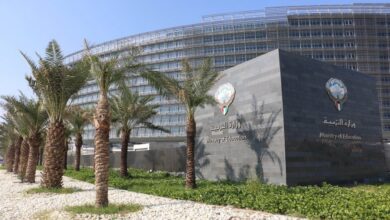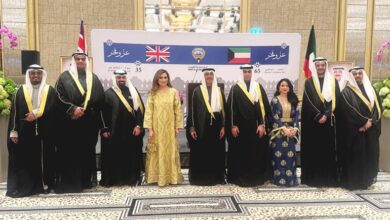Kuwait races to strengthen anti-money laundering framework ahead of FATF evaluation report

As Kuwait awaits the results of the Financial Action Task Force (FATF) Mutual Evaluation (MEME) scheduled for release in November, the regulatory authorities are intensifying efforts to implement sweeping legal and institutional reforms. These steps aim to address identified deficiencies and prevent the country from being placed on FATF’s “grey list.”
The grey list includes jurisdictions under increased monitoring due to weaknesses in their anti-money laundering (AML) and counter-terrorism financing (CTF) frameworks.
Currently, 21 countries are on this list, all of which have committed to working with FATF to rectify their shortcomings within set timeframes. In contrast, FATF’s blacklist—reserved for countries with severe strategic deficiencies—includes North Korea, Iran, and Myanmar, reports Al-Rai daily.
Sources told the daily that the Ministry of Commerce and Industry has taken serious steps to rectify FATF-related concerns, especially those linked to sectors under its supervision.
Ministry officials recently held strategic meetings with UAE authorities to study their approach to addressing FATF observations. The discussions focused on regulatory enhancements, particularly concerning the identification of beneficial ownership, oversight of currency exchange and real estate firms, and monitoring of gold, precious metals, and gemstones trading—areas deemed medium to high risk.
During the meetings, Kuwait reviewed how the UAE implemented FATF recommendations across key sectors, with a focus on oversight mechanisms and enforcement protocols; technology platforms used in compliance and monitoring; procedures for registration, inspections, and penalties and bilateral cooperation and technical dialogue to exchange expertise and best practices.
Five major oversight initiatives are now being prioritized by Kuwaiti officials to strengthen compliance — expanding penalties for non-compliance among commercial license holders; establishing a unified registry for licensed commercial entities; enhancing training programs for staff and stakeholders; boosting the effectiveness of the suspicious transaction reporting system and creating modernized, comprehensive databases that align with global standards.
Presentations and workshops were conducted with UAE entities such as the Ministry of Economy and Tourism, the Dubai Financial Services Authority, the Abu Dhabi Global Market, the Ministry of Justice, and the Executive Office for Control and Non-Proliferation. These exchanges aimed to fortify Kuwait’s capabilities in combating money laundering, terrorism financing, and arms proliferation.
Kuwait’s ultimate objective is to fortify its regulatory defenses, rebuild international confidence, and steer clear of any inclusion on FATF’s grey list by demonstrating tangible, high-impact reforms in line with global expectations.












